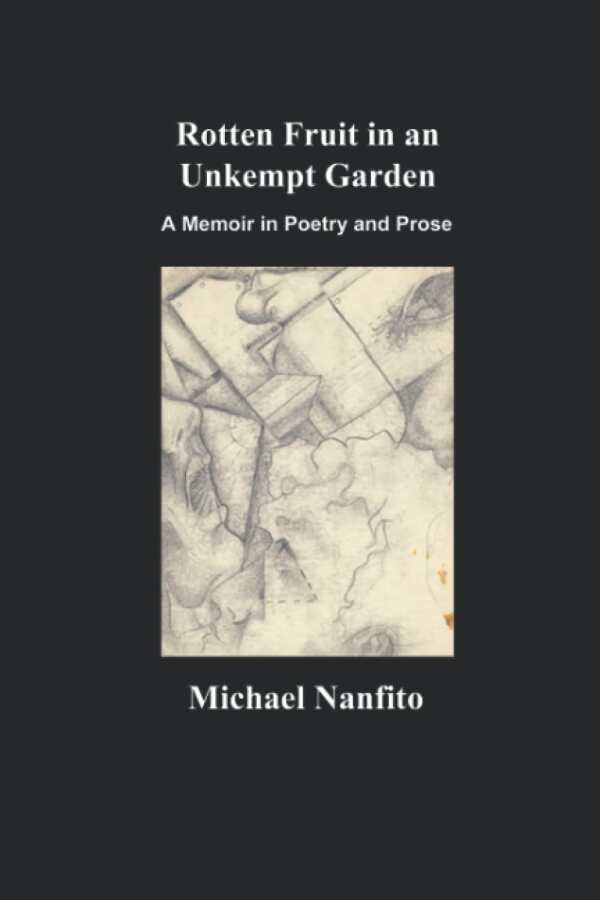
Rotten Fruit in an Unkempt Garden
A Memoir in Poetry and Prose
The memoir Rotten Fruit in an Unkempt Garden dignifies the social outliers who nurtured a man’s quest for self-improvement.
Michael Nanfito’s boundary-pushing memoir Rotten Fruit in an Unkempt Garden uses harrowing situations to test his platonic ideals.
Nanfito grew up in San Jose in the 1970s. Two men nurtured him in opposite ways: his abusive father taught him metalwork; a Jesuit priest tutored him in subjects including literature, philosophy, and theology, encouraging him as an artist and musician. But when Nanfito was seventeen, his father cast him out of his house.
After high school, in addition to his work in construction, Nanfito made his money by running contraband up and down the West Coast. He adjusted himself to the challenges of living “among those who lacked the vision and the wherewithal to lift their eyes and see above the shadows dancing at the fringes of their walled–in lives.” But even while navigating this edgy environment, he wished to become the kind of man whom the priest taught him about.
Nanfito’s expansive ideals direct the book’s movements and shape its forms. He discusses his life in terms of his encounters with others, covering events like a bar fight, a one-night stand, and getting an addict help; he introduces those whom he met on the road in terms of their physical and spiritual qualities. However, these people do not often speak for themselves: Nanfito discusses them in terms of their interactions with him, with focus on factors like how women move during sex, or how men beat each other. He mines these experiences for lessons, using them to move himself toward his lofty platonic ideals. His friendship with the wife of a rich businessman stands out: with her, he exhibits his sustained determination to know himself better by getting to know others. Indeed, the book takes care to celebrate experience as a person’s best teacher.
Still, though these encounters with others are organized to reflect Nanfito’s personal progression, the scenes themselves arrive in a spontaneous manner. The openendedness of life on the road becomes most directive: Nanfito muses through ideas about freedom and the self—thoughts that take precedence over specifics. And because the book’s language is so abstract, the details of Nanfito’s own story remain somewhat vague. His poems and art act as more illustrative rest stops in the midst of his heady prose.
Through its raw poems, art, and tributes, Rotten Fruit in an Unkempt Garden dignifies the social outliers who nurtured a man’s quest for self-improvement.
Reviewed by
Mari Carlson
Disclosure: This article is not an endorsement, but a review. The publisher of this book provided free copies of the book and paid a small fee to have their book reviewed by a professional reviewer. Foreword Reviews and Clarion Reviews make no guarantee that the publisher will receive a positive review. Foreword Magazine, Inc. is disclosing this in accordance with the Federal Trade Commission’s 16 CFR, Part 255.
